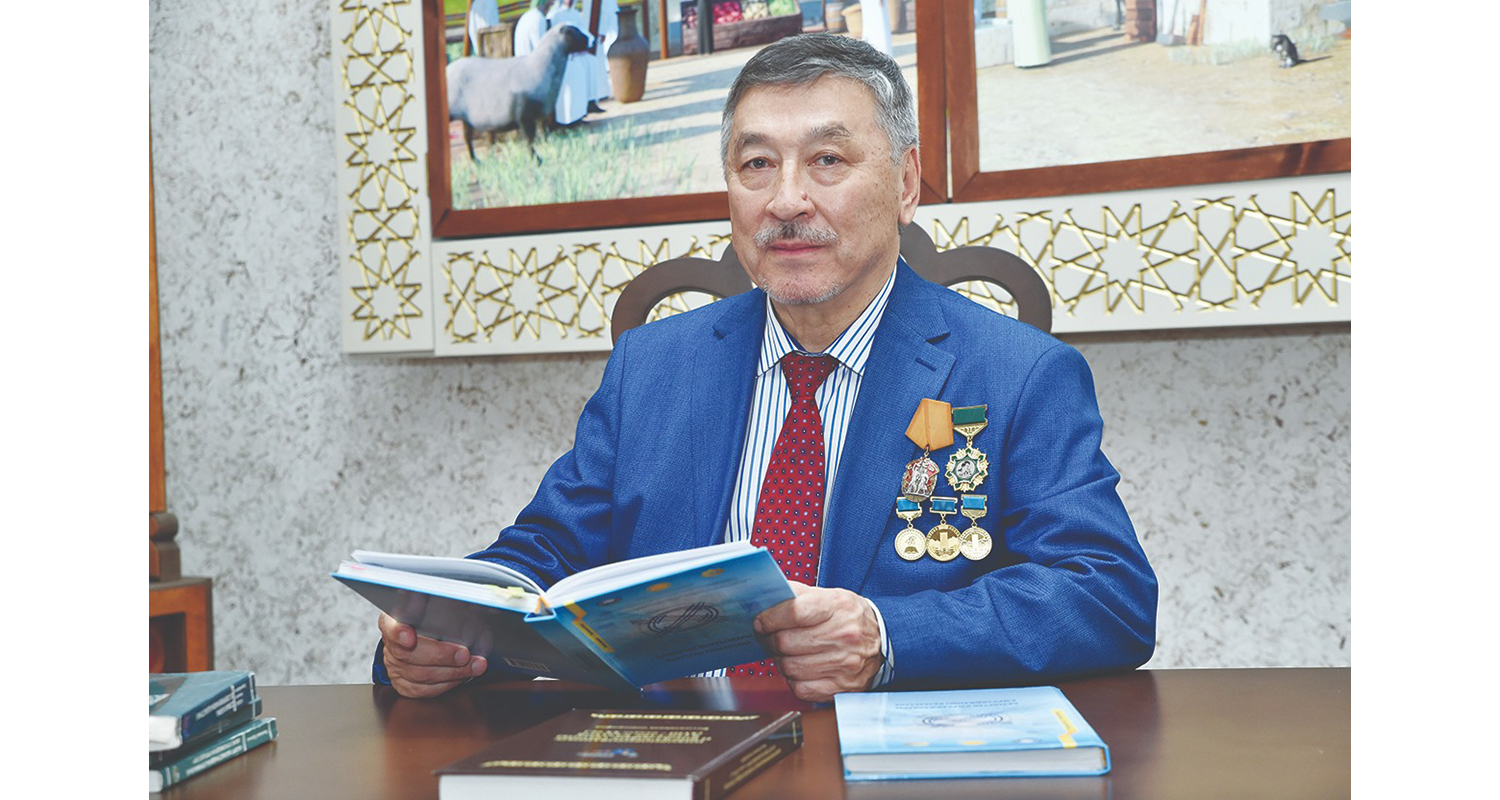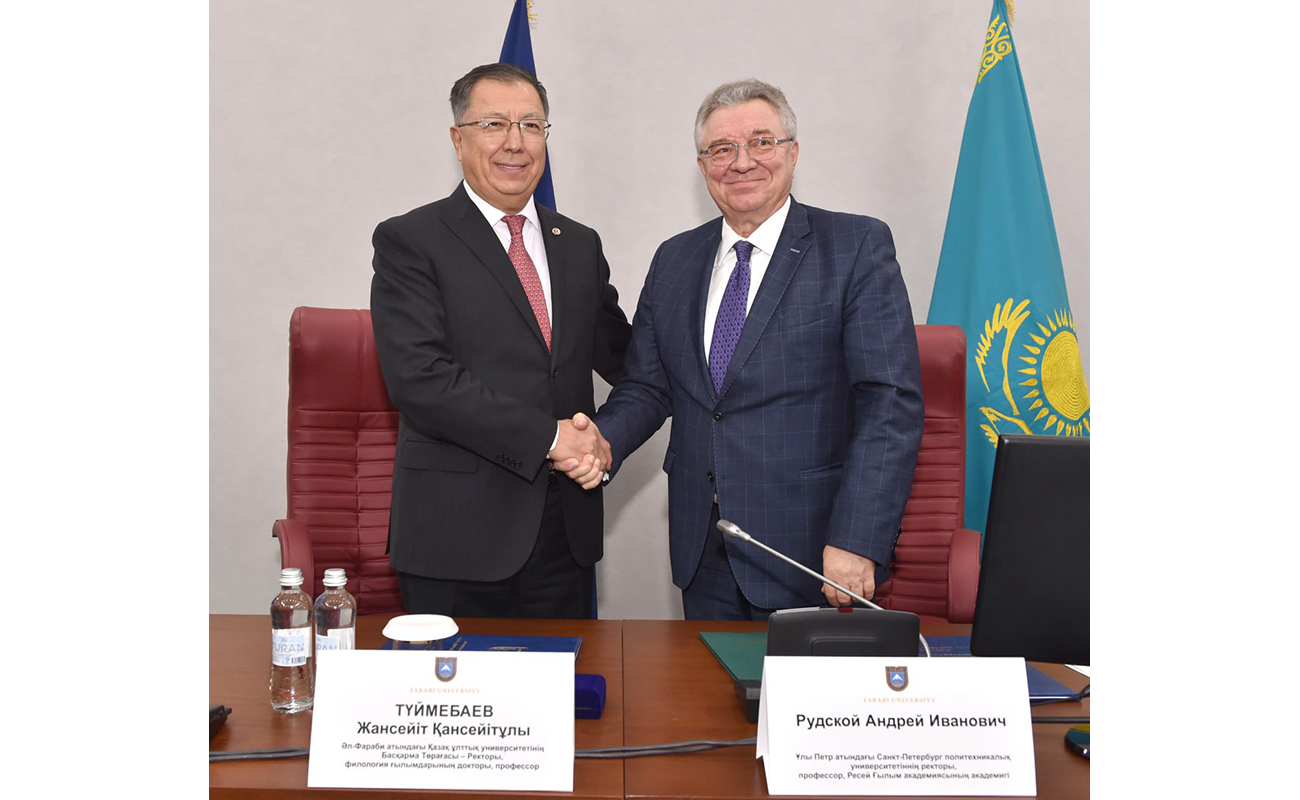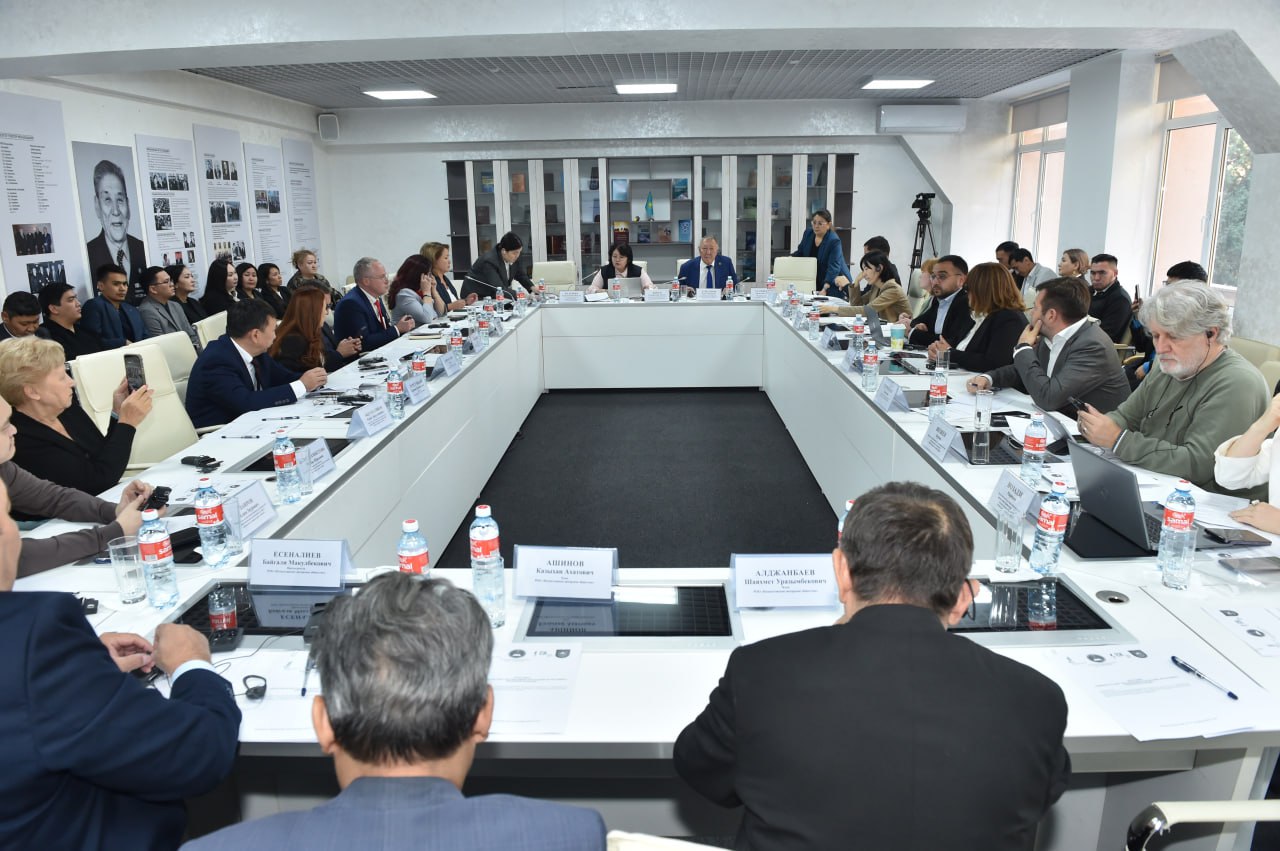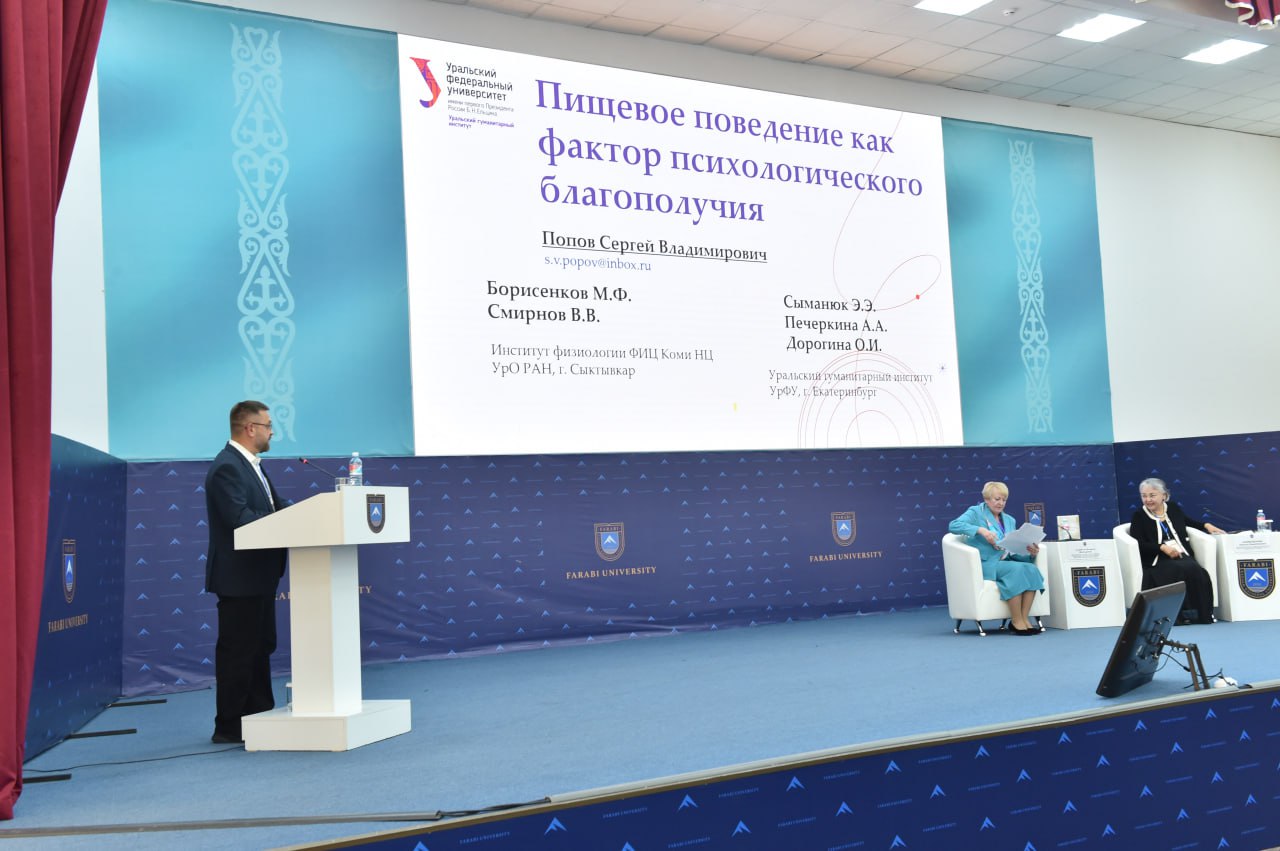- Main
- News
- Amanzhol KALYSH, doctor of historical sciences, professor: our generation is not jealous of science
Amanzhol KALYSH, doctor of historical sciences, professor: our generation is not jealous of science

The path of science is a hard path. Therefore, not one of the two goes to it. Since our specialty is a research university, we need to involve young people in science.
- Amanzhol Boranbayevich, it seems that your passion for history began in childhood. What affected him?
- You're right, in general, I was interested in history from childhood. It is not an exaggeration to say that I was even passionate. I grew up passionate about everything – primitive communal construction, the creation of humanity. In the 50s and 60s of the last century, when I was in the fourth grade, there were 150-160 countries in the world, all of which I knew by heart, including the capital. When I was interested in myself, I read a lot of newspapers and books that were captured. As a child, I studied well, in grades 4-5 I could study and master a new lesson in advance. My teachers also liked it, and they used to set an example for my classmates, and sometimes tell me a new lesson that I didn't pass. In addition, I did not lag behind the stories of adults.
I had an aunt who graduated from the Faculty of history of this Kaznu. The same man studied with the scientist Kemel Akishevich, who first discovered the" Golden Man", and he also heard a lot of stories. My own parents also had a very fateful life. My father was orphaned at the age of three, in 1939 he left for the Finnish war, from which he came safely. My mother was the daughter of Pavlodar, the famous Bayanaul. Our grandfather was an open-minded, active, wealthy «kuishi». As you know, during the famine that began in the Twenties, the subsequent famine and repression, the people fled in all directions. The Zhetysu region was mainly exported to China, Central Kazakhstan to Russia, the southern region to the Uzbek, Karakalpak lands, the western region to Turkmenistan, Afghanistan, and Iran. 70 out of 100 Kazakhs in Western and central Kazakhstan, who lived only on cattle during the famine, died of hunger. In modern Uzbekistan, at least 3 million to 5 million Kazakhs have been registered as Uzbeks.
It turns out that our relatives also crossed this Uzbek, Karakalpak, Turkmen land. Then, as children, they come to the village for a walk, tell their stories. My father would take me there to the brothers, and their strong adherence to national traditions and Kazakh tekemet-syrym, alasha-carpet everything. On this day, when I think about it, this is how my father raised me so that I would not be disconnected from the National essence, consciousness, traditions and culture. Otherwise, the region where I grew up, Aktobe region, in Soviet times, was a region dominated by other nationalities. If we did not gain independence, would we become Russian on this day, would we return? I decided that I would become a historian by the time I was in fourth or fifth grade.
-Then you dreamed of entering KazNU...
-Yes, at that time I did not say that I would study at KazNU, at least in Almaty. God put it in my mouth, and then when I came to the eighth grade, when I was studying at the Kekiltau station of the Khromtau District of Aktobe, I fundamentally decided that I would study in Almaty, at KazNU. It is very difficult to enter a university at that time. The competition is very high. Taking this into account, my parents sent me to the Orenburg City of or to study grades 9-10. Oh, what was the education of that time perfect. We graduated from high school in three classes, and not a single student from those three classes received a "golden sign". The requirement for knowledge is very strong. The famous Nagashybay Shaikenov, who was the minister of justice and later opened the law Academy, graduated from the boarding school where I studied. Then his brother, Amangeldy, also graduated from the same educational institution in the city. He served as the head of urban education in the Kyrgyz country, was the consul general of this country in Almaty, and here I was educated where the requirements for education are very high. Finally, I came to Almaty and entered the KazNU, which I dreamed of, with a score of 23. I took an oath to myself: "I will study well, I will not misbehave." Classes from 8 to 1, from two to 9.30 pm I go to the Pushkin library to study. Then, looking out the window, I long for the village. Thought my friends, who could not enroll, stayed in the village, work hard on the railway, and I am in Almaty, studying at KazNU" filled my chest with joy. I read a book until my eyebrows darken. Some days the librarians are kicked out. This is how we craved knowledge.
– You say," in fifty years the country is new"...
- At that time, both books and textbooks were in short supply. "I don't know," I said. There is information on the computer. I still remember, there were a couple of textbooks on history. Whoever goes to the library first gets his hands on it first. As they say, we make a synopsis, we touch where we need to. When I read a book until nightfall, I read not for someone, but for myself. What were the teachers, scientists and leaders of our time... They were professionals. And, frankly, we dreamed to be like them. What a man was our rector Omirbek Arslanovich! A great scientist, a qualified leader, created the conditions for both students and teachers. Before him, our rector was Zakarin. He was particularly knowledgeable, serious and reserved man. It was he who created the project of the campus of KazNU, which was later continued by U. Zholdasbekov. What special personalities were, now I miss them when I remember.
What an educated, serious scientist was the famous economist Yahya Aubakirov. In some years, he served as vice-rector. Father of Zhania Aubakirova, a famous pianist, rector of the Kurmangazy Conservatory. We had a wonderful teacher, Dina Dulatova, who headed the Faculty of history. We, having received the upbringing and knowledge of these people, probably do not have a dream. The mother of our aunt Dina Dulatova, Zeynep Mukametzhanova, was the director of the famous School No. 12 in the 50-60s. Our aunt Dina, who came from such an intelligent family, was a strong manager. Such thorough and compassionate teachers are few and far between on this day. At that time, he personally led the students of the faculty, trained in Moscow museums, the famous Hermitage. There were a lot of girls in our history department, there were few guys. We took 12-13 places in various competitions. Thanks to her professional expertise, Dina Dulatova raised the faculty to 4-5 places. Then the students of that time thought:" How can I contribute to my university and faculty". I myself was not very talented, and then, when I was in the 1st year, I wanted to contribute to the honor of the faculty, without telling anyone, I painted it with mascara, 4/5 in size, and made a beautiful panel. I covered its edge with wood. Then I brought him on the day of the observation. I still see the joy of my teachers there. What happy days were. Why am I saying all this? Now is the time when the value of spiritual values has fallen. I mean with the desire to let young people know and follow the example of the past.
- You wrote the Alash Chronicle, studied the culture and Ethnography of the ethnic group in the country. Are young people interested in these topics?
– As a student, I was the chairman of the komsomal Organization of the Faculty of history, deputy chairman of the komsomal Organization of the University, Commissioner of the construction team. The construction of the building, which now houses the Higher School of Economics and business, the Faculty of law, was built by our own student youth construction team. I received a scholarship named after V. Lenin. As a student, I was presented to the sign "Honor". At that time, it was called self-management. We solved the issue of scholarships and dormitories for students together with the trade union organization. We had a teacher, Zhaken Taimagambetov, who said that students in the field of sports and music make a name for the university, even if they receive a "triple" grade, we set high scholarships. All this is like a fairy tale if you tell it now. It's been a long time since I've experienced some amazing days...
Then I entered graduate school at the Research Institute of history and Ethnography named by Sh.Ualikhanov. I was engaged in scientific work for 15 years. At that time, equipment was hard. Our scientific expeditions went as far as the USA, Japan. We have gained a lot of experience. We worked closely with the Al-Farabi University. I studied the ethnic group in Kazakhstan. I studied what changes are taking place in their culture, what influence the Kazakh people have on their development. In 1992, my aunt Dina Dulatova invited me to the University, and then I changed. In those years, we were faced with the task of involving young people in science. I studied the problem of family and marriage in a new way. As you know, the policy of the Soviet era showed us as traitors to Russia, China, Turkey, Iran and Afghanistan. We studied the reality of our historical ethnography. We learned how the Kazakh diaspora abroad came to the country.
I am curious to tell you that in the 90s in Mangistau region, in Zhanaozen, we met intelligent Kazakhs from Iran. At that time, he was not allowed to return from Iran to his historical homeland, so he created a football team to come to the country. We studied this issue with Marat Mukanov, how our compatriots came to the country, how they adapt to the local environment. The Department of Kazakh history and Ethnography attracted pocket intellectuals, and we created the Historical Research Center "Alash". It was headed by the late brother Talas Omarbek, and H. Kabzhalelov did a lot of work to support him. In this center I took part in writing The Chronicle "Alash".
The path of science is a hard path. Therefore, not one of the two goes to it. Since our specialty is a research university, we need to involve young people in science. We must create conditions for young people to engage in science. The lecture is given by one of the two, and not everyone can engage in science. Therefore, our arms are always open to young people who have turned to science. We do not spare knowledge and experience from them. We want to learn knowledge beyond textbooks, that is, to give what we see and know. During our years of study, we were not divided into Kazakh and Russian departments. Books of Kazakh origin are read by students of the Russian department, Russian books are read by those who study Kazakh. Every week we went to the bookshop "Bukinist" on Gogol Street, where we could discuss the books we spent. Here, in the same bookstore, I often saw our current rector Zhanseit Kanseitovich. Once, when I visited, I found that he was carrying a book by a Russian classic of the XIX century. At that time, the guys from the Kazakh Department read a lot of Russian. Like us, the guys from the Russian group studied Kazakh. This is how we received strong training from the University.
We do not have envy for Science in ourselves, we share everything we have. At the end of my story, I would like to share one thought that worries me. Modern young people receive education and do not work in their specialty. In the West, in Japan, people use the knowledge gained for the rest of their lives. We do not have it. For example, I have my own children in it, and they have moved to another area. Let him be a chemist and master this field for the rest of his life, and let him be a mathematician. In general, I am against the dynasty in the field of history, law. Mining, agriculture, etc. I don't mind if it's a dynasty of industries, and I don't mind when it comes to history. If every person uses the knowledge gained for the benefit of the rest of his life, he and society will benefit from it.
- Thank you for the conversation.
Conducted an interview
Gulzat NURMOLDAKYZY


